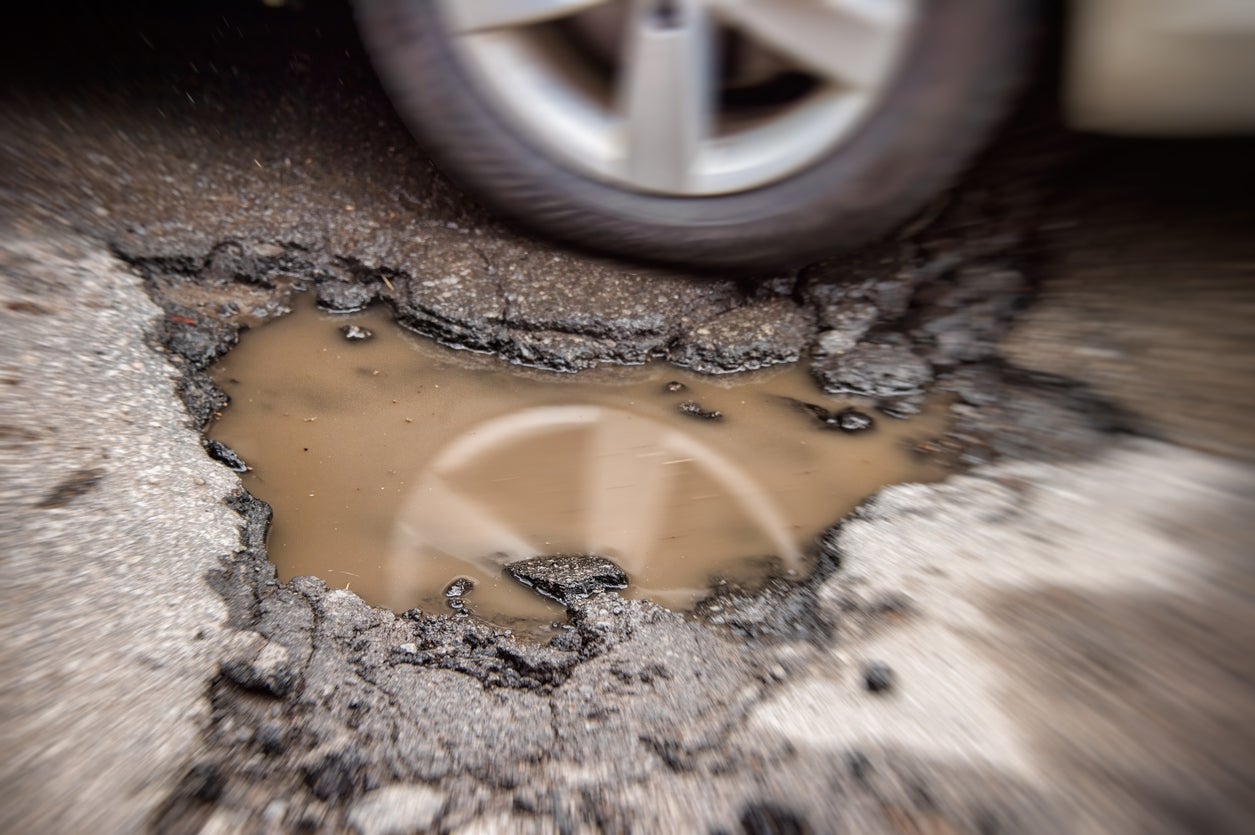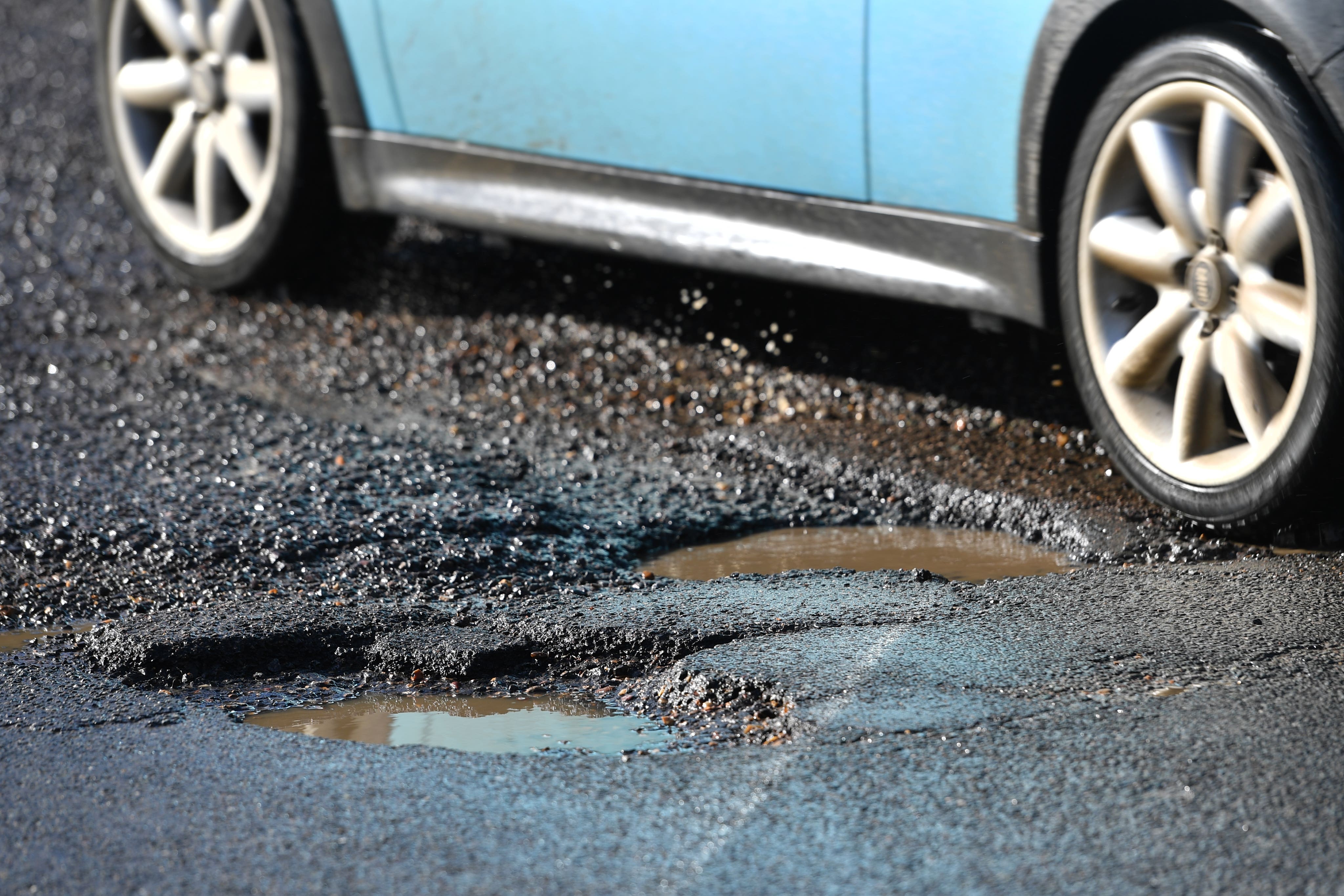RAC figures reveal the true impact of potholes on drivers
Potholes are often formed when water freezes and expands after entering cracks in the road surface

The number of vehicle breakdowns caused by potholes have been revealed by the RAC.
The incidents have increased by 9% in the past 12 months.
Some 27,205 callouts to breakdowns due to poor road surfaces in the UK were received by the RAC in the year to the end of March.
The figure compares with 24,906 during the previous 12 months, the motoring services company said.
Common vehicle problems caused by potholes include damaged shock absorbers, broken suspension springs and distorted wheels.
The RAC said pothole-related callouts were actually down by 22% in the first three months of this year compared with the same period in 2023, but attributed this to milder weather than normal reducing incidents of new road damage.
Potholes are often formed when water freezes and expands after entering cracks in the road surface.
RAC head of policy Simon Williams said: “While our data shows pothole damage to vehicles in the first three months of this year is lower than it was in the same period in 2023, it’s important not to lose sight of the bigger picture and the ongoing miserable state of our roads.
“The analysis clearly shows drivers are now twice as likely to suffer a breakdown due to sub-standard road surfaces as they were in 2006.
“While many would rightly say the roads are terrible, we believe they would have been far worse had we not had such a mild winter.
“We feel drivers have dodged the pothole bullet as the lack of widespread sub-zero temperatures has masked the true state of our roads.”
In October 2023, the Government announced it would provide £8.3 billion of extra funding over 11 years to fix potholes in England.
This was part of the Network North strategy to use money saved by scrapping the planned extension of HS2 north of Birmingham.

The cost of bringing pothole-plagued local roads in England and Wales up to scratch has been estimated at £16.3 billion.
Darren Rodwell, transport spokesperson for the Local Government Association, said: “Councils share the concerns of all road users with the state of our roads and are doing all they can to tackle the £16.3 billion backlog of road repairs, including learning from and adopting innovative techniques.
“Greater, long-term and year-on-year consistency of funding for the maintenance of all parts of our highways will help them achieve this.
“The Government should award council highways departments five-yearly funding allocations, to bring them on a par with National Highways, to give more certainty so they can develop resurfacing programmes and other highways improvements, to help them tackle the scourge of potholes.”
A Department for Transport spokesperson said: “Local highway authorities are responsible for maintaining their road networks, but we are supporting them with £8.3 billion of reallocated HS2 funding over the next 10 years, the biggest ever increase in funding for local road improvements which comes on top of an existing £5.5 billion fund.
“Local authorities received the first £150 million of this increase within weeks of announcing our additional funding in October, and will receive a further £150 million this year to continue improving local roads.”
Bookmark popover
Removed from bookmarks